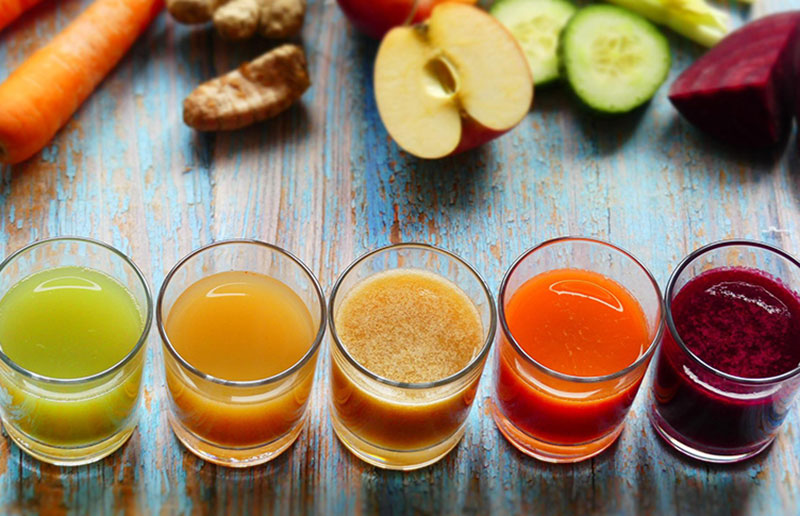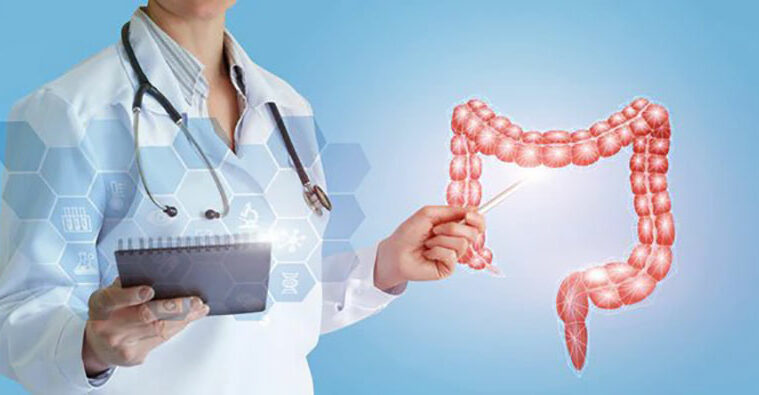Colon hydrotherapy has sparked a lot of interest in recent times due to the many alternative health experts – including David Avocado Wolfe – who sing its praises. But is colon hydrotherapy good for you? This article will provide a comprehensive look at the topic with the aim of helping you make an informed decision.
What Is Colon Hydrotherapy?
Colon hydrotherapy is a type of colon cleanse.
During a colon hydrotherapy session, a practitioner flushes the patient’s colon with fluids – usually water. The practitioner sends the water – roughly 60 liters of it – into the patient’s rectum and presses on the stomach to push the water along. (1)
The patient is usually lying down on a table during this process. The water passes through their colon and back out of a separate tube. In some practices, the colon hydrotherapy patient can see the water and any fecal matter that passes through the clear tube.
It can be an incredibly eye-opening experience for the patient to see what comes out of them during this procedure. This is especially true if the patient hasn’t been eating the best diet or using detox supplements to keep their insides clear.
Why Do People Get Colonics?
Colon hydrotherapy (or “colonic”) proponents share many core beliefs concerning the practice.
Among them is the idea that your colon contains layers of hardened toxic fecal matter. Such proponents claim that a colonic can remove these layers.
Some go as far as claiming that removing the hardened toxic material can help you shed pounds immediately after a colonic.
Whether or not these claims are true has been the subject of much debate within the scientific community, which we’ll explore shortly.
Additional motivations behind getting a colonic include the procedure’s purported ability to promote regular bowel movements and encourage healthy bacterial growth in the colon.
In some cases, patients receive a colonic in advance of a procedure like a colonoscopy that requires a completely clear colon.
The Research Behind Colon Hydrotherapy
Relief From Constipation
Research shows that regular bowel movements are important for maintaining a healthy nervous system.
Nerves in your bowel communicate with your central nervous system, impacting everything from hormonal balance to mental function and sleep. (2)
On the flip side, chronic constipation can negatively impact these same functions. Even doctors who are skeptic about colonics acknowledge that the practice can provide relief from constipation. (3)
Some patients notice that after a colonic, they have a short bout of diarrhea as their system flushes out waste.
Decreased Fecal Residue

In one study from 1982, researchers looked into the effect of an enema on the amount of fecal residue in patients’ colons.
Enemas are similar to colon hydrotherapy, save for the fact that an enema involves less water. Many people also perform enemas at home, while a colonic most often happens in a practitioner’s office. (4)
Researchers found that as much as 80% of the patients had much cleaner colons after an enema. (5)
With a second enema, that number jumped to 96%. So you can only imagine how much cleaner a colonic – which involves much larger quantities of water – will leave your colon!
Despite evidence showing that your colon can retain hardened feces, some skeptics of colonics take issue with claims proponents make.
A common target for such detractors is the claim that your colon can contain pounds upon pounds of hardened feces. Although many people anecdotally claim to have lost a tremendous amount of weight following regular colon hydrotherapy, there is no research backing this theory up.
So while colon hydrotherapy can remove some impacted feces from your colon, there’s no guarantee that you’ll end up 20 pounds lighter because of this particular mechanism.
That’s not to say a colonic can’t help you lose weight in other ways, though.
Weight Loss
Colonic proponents state that the procedure can help you lose weight by kick-starting your metabolism. (6)
Many patients anecdotally report becoming more regular as a result of regular colon hydrotherapy. As this article previously mentioned, it is not uncommon for colonic patients to briefly experience diarrhea following a session as their bowels kick into high gear.
Is Colon Hydrotherapy Safe?

Research shows that a colonic presents no substantial risk for harm – when the practitioner does it properly and provides you good guidance.
Negligence on a colonic practitioner’s part can pose some serious, possibly fatal health risks. This article will outline some below.
Bowel Perforation
If the practitioner pushes water into the patient’s colon using too much force, the pressure can lead to perforations. Whatever toxins your colon previously contained would then have easy access to the rest of your body. (7)
This is a major concern with some “do-it-yourself” colonic kits on the market. One of these kits prompted the Texas attorney general to sue the manufacturer after a patient died due to a perforation in her large intestine.
The lawsuit cited four other patients who experienced serious injuries while practicing colon hydrotherapy improperly.
To avoid this, be sure to speak with a medical professional before seeking out a colonic. A good practitioner should ask you questions about your lifestyle and medical history that would indicate if you are at high risk of a bowel perforation or not.
Electrolyte Imbalance
Patients who go overboard with colon hydrotherapy are at risk of absorbing too much water, causing an electrolyte imbalance. This can lead to nausea and vomiting as well as more serious conditions such as fluid in the lungs and heart failure.
This again highlights just how important it is to receive a colonic from a reputable and experienced professional, after seeking input from your primary physician. (8)
Another risk that arises from too much colon hydrotherapy is the potential for the process to wash away too much healthy bacteria. Your colon contains natural healthy bacteria that aids in the cleansing process. If your levels of this bacteria become too low and you aren’t taking precautions to compensate for it, the bad bacteria in your colon can grow uncontrollably.
Infection
Before receiving a colonic, make sure your practitioner is operating in a safe, clean environment. The tubes they insert into your rectum should be disposable, sterile and brand new.
Make sure to look for reviews on colonic practitioners in your area to get an idea of whose facility is clean! (9)
Alternatives To Colon Hydrotherapy
A colonic is a great way to detox. That said, there are several things you can do on a daily basis to maintain a healthy colon. Some of these strategies are much simpler than a colonic. They can also present less risk, which is a plus for anyone who’s hesitant about colonic providers in their area.
Supplements

A parasite cleanse is one such strategy. There are many natural ingredients parasite cleanse supplement manufacturers use to promote healthy intestinal function.
These include cloves, which contain one of the most powerful natural germicidal agents out there – eugenol. (10)
Clove can dissolve eggs parasitic worms leave behind. In fact, researchers theorize that clove oil is one of the only natural oils that can do this. (11)
Wormwood is another popular anti-parasitic herb. It has shown remarkable effectiveness against two of the most common parasites – pinworms and roundworms. (12)
You can find both clove and wormwood among our many detox products, which we’ve designed as one-stop-solutions for detoxification of your entire body, including your colon.
Enemas
Enemas are a popular alternative to colon hydrotherapy. One reason for this is that enemas are much easier to conduct at home on a regular basis.
An enema involves injecting a liquid into your rectum, in much smaller quantities than the kind you’ll see during a colonic. (13)
This liquid will flush out impacted stool in your bowel and help you get regular again.
A medical doctor can prescribe you the materials you’ll need to conduct an enema at home. They can alternatively direct you to a practitioner that might be able to perform an enema for you.
Diet

OK – we admit it. Improving your diet won’t give you acute relief quite like a colonic can. But it’s imperative to healthy colon function.
Let’s put things another way. There’s little use in getting regular colonics if you’re just going to keep pumping your body full of the same junk that got you backed up in the first place!
Increasing your fiber intake is an immediate step you should consider. Foods that contain lots of fiber include the following: (14)
- Fruit
- Vegetables
- Whole grains
- Legumes
- Nuts and seeds
Eating probiotics is also important. Probiotic foods contain beneficial live cultures that maintain balance in your digestive system. (15)
You can find probiotics in certain yogurts, as well as sauerkraut, pickled vegetables and tempeh.
In an ideal world, you should be able to combine the above practices with occasional colon hydrotherapy. Under a medical professional’s supervision, this combined strategy can provide you the health benefits you want from a colonic.
Please remember that a single colonic is not a quick, permanent fix for all digestive issues. When you put this into perspective, you’ll realize the importance of taking your time when getting a colonic for the first time.
Last but not least, be sure to consult with your primary physician before embarking on a colonic. Doing so will help you pinpoint any issues in your lifestyle that may indicate red flags to look out for.


